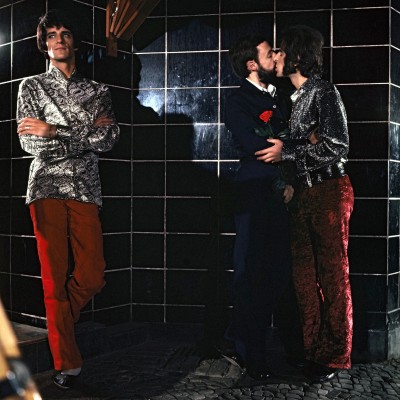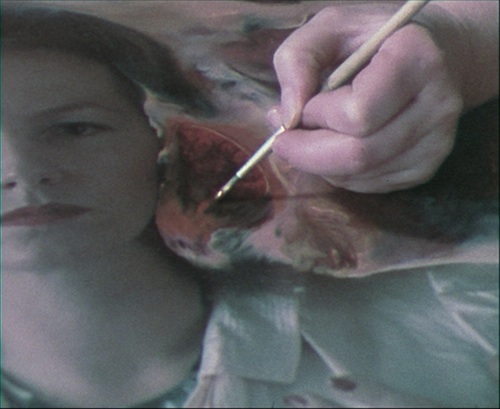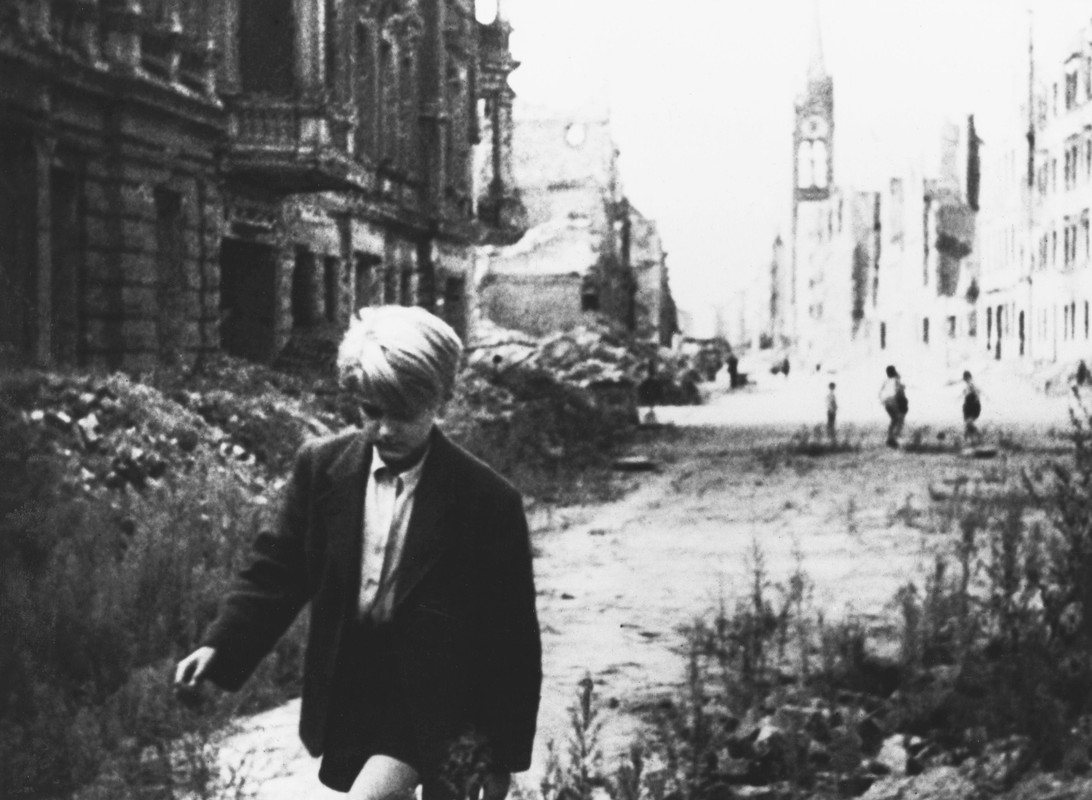Tätowierung [Tattoo / The Delinquent] (Johannes Schaaf, 1967)
Nov
18
National Adoption Day

Benno (Christof Wackernagel), a pensive young man with dark hair and dark eyes. DPs: Petrus R. Schlömp & Wolf Wirth.
16 year old Benno (Christof Wackernagel) lives in a reformatory until the Lohmanns, a rich middle-aged #WestBerlin business couple decides to adopt him. A new world opens up, one of adulthood and responsibility. For the teenager, this neatly regulated new bourgeois life feels all wrong.
Berlin
“Was ist loos? Der Hund is loose.” Stroszek (Werner Herzog, 1977)
Sep
9
German Language Day

A warm Railroad Flats, Wis. “Willcomen” [sic] for (LtR) Scheitz, Eva, and Bruno, with Mr Scheitz's nephew (Clayton Szalpinski) squeezed between his “Onkellein” and Eva. DP: Thomas Mauch.
Bruno Stroszek (Bruno S.), his friends Eva (Eva Mattes) and Scheitz (Clemens Scheitz, responsible for the fairy-tale music you hear in this film) decide to leave dreary #Berlin behind and move to #Wisconsin where the latter's nephew lives. A new life, with dreams of music and animal magnetism, awaits them there.
– Clayton
As so oft with #Herzog, the story behind Stroszek is as engrossing as the resulting film. Documentary maker Errol Morris and Herzog were fascinated by Wisconsin's own Ed Gein and wondered if Gein had dug up his own mother, as was rumoured at the time. As they would, they decided to open the poor woman's grave. Morris never showed up, and neither did Herzog but only because his car broke down en route to Plainfield, Wisconsin. Trying to get the vehicle fixed, Herzog entered the workshop of a Clayton Szalpinski.
A character in his own right, and a non-actor to boot, Clayton ended up in Stroszek as Scheitz's nephew; a MacGuffin odder than a dancing chicken.
“Werdet stolz auf eure Homosexualität! Raus aus den Toiletten, rein in die Strassen! Freiheit für die Schwulen!”Nicht der Homosexuelle ist pervers, sondern die Situation, in der er lebt [It Is Not the Homosexual Who Is Perverse, But the Society in Which He Lives] (Rosa von Praunheim, 1971)
Jul
6
National Daniel Day

A gay couple kissing on the street in front of a black-tiled Berlin bar. A third gay man nearby looks away. DP: Robert van Ackeren.
Daniel (Bernd Feuerhelm) is a young man in #WestBerlin exploring his homosexuality. Initially he opts for a spießbürgerlich, petit-bourgeois, almost heterosexual affair. He then probes further, swings by Berlin's public toilets and pools. Only when he encounters a leftwing gay commune he finds that pride, not conformity, is his way of living his life.
Von Praunheim's Nicht der Homosexuelle ist pervers is a plea for rebellion and visibility. For revolt and love. A wakeup call for gays and straights alike. Such a stir this film pamphlet made it became the blueprint for West-Germany's gay liberation movement.
“An diesem Tag war das Bild, drei Monate nach Beginn und 67 Arbeitstagen fertig.”Ein Bild von Sarah Schumann [A Picture of Sarah Schumann] (Harun Farocki, 1978)
Jun
26
National Sarah Day

A close-up of the artist's hand at work. More stills and details about this film on Frieze. DP: Ingo Kratisch.
Commissioned for a West-German TV series called Kunstgeschichten (litt. both “art stories” and “#art histories”), filmmaker Harun Farocki visits artist Sarah Schumann in her #Berlin studio.
– narrator
The resulting documentary shows the process of creating one art piece over the course of nine weeks. Schumann's work in that period consists of collage portraits of women important in her life.
– I don't go to school anymore. – Why not? You don't like the new teachers? – I have to work now.Germania anno zero [Germany Year Zero] (Roberto Rossellini, 1948)
Feb
6
National Sickie Day

Edmund (Edmund Köhler) walking through rubble in a post-apocalyptic Berlin. DP: Robert Juillard.
Twelve-year-old Edmund – the oldest kid to survive – works to support his whole family including his sick bedridden father while the remains of what was a thousand-year empire lies in rubbles around them.
Following Roma città aperta (1945) and Paisà (1946) of #Rossellini's unofficial war trilogy.